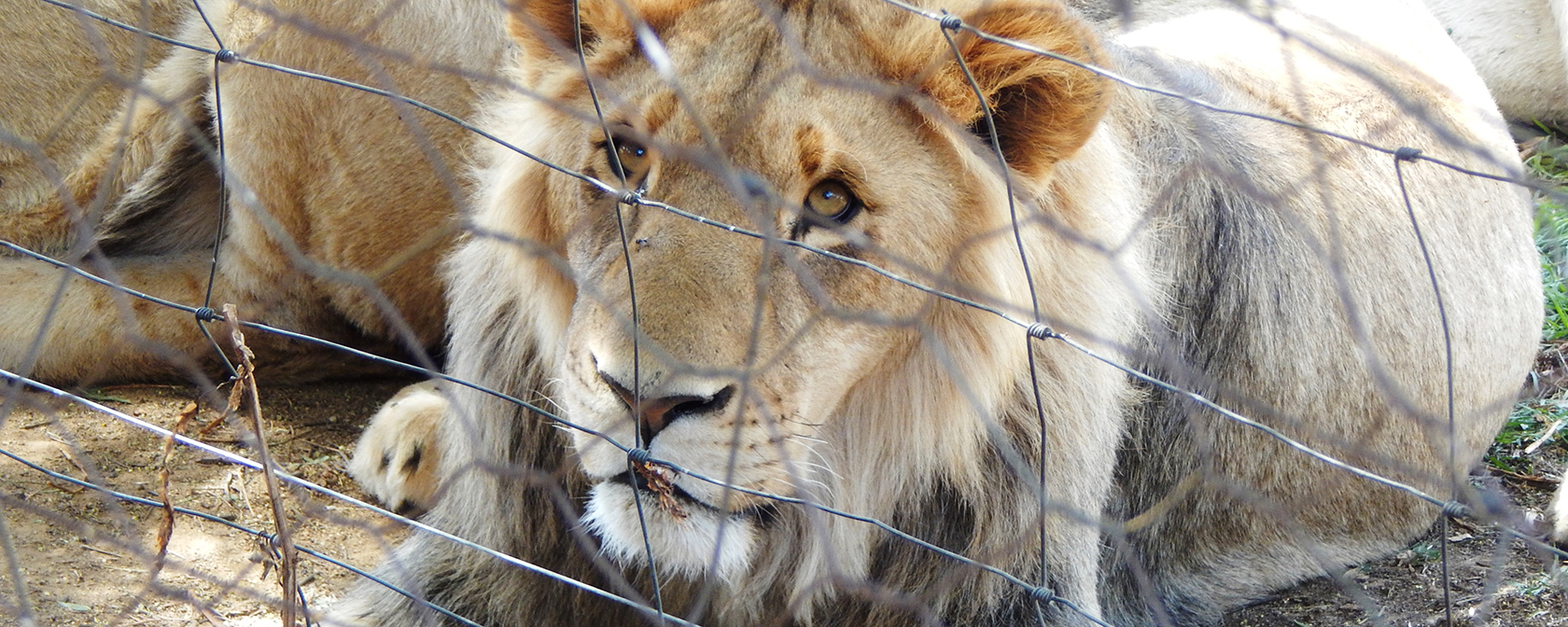By Sara Amundson and Kitty Block
A key panel appointed by the Minister of Forestry, Fisheries and the Environment in South Africa recommends banning captive lion breeding and the commercial trade of lion parts such as lion skeletons. Humane Society International/Africa has been a key player in the campaign to phase out these exploitative practices. Such a move couldn’t come soon enough for thousands of captive-bred lions who are treated as nothing more than money-making objects, from birth until death.
The captive lion breeding industry in South Africa feeds three intertwined businesses: cub petting, canned hunting and the trade in lion bones. Cub petting draws tourists by promising a chance to touch and hold lion cubs while getting their photos taken (social media is littered with the evidence of how popular this attraction is). When captive-bred lion cubs grow too big for petting, they are often corralled into confined spaces so that trophy hunters can more easily shoot and kill them. Bones from the carcasses of these once-majestic creatures are often then sold into the lion bone trade.
It’s a twisted cycle of misery for these intelligent, social big cats. Ending these practices where they begin—by stopping captive lion breeding—is the right and decent thing to do to.
The panel also recognized animal welfare as a central pillar of wildlife management policy, another key proposal made by HSI/Africa.
But not everything that came out of the convening panel was good news.
The panel had the chance to lay the groundwork for dismantling the destructive trophy hunting industry in South Africa—this it tragically failed to do. Instead, it appears, South Africa will opt to risk one of the country’s greatest treasures—its wildlife—by authorizing an expansion of trophy hunting of its iconic species. As an economic strategy, the ministry will seek to expand trophy hunting of rhinos, elephants, leopards and wild lions and to promote trophy hunting in general.
In many respects, this was a missed opportunity to reform a broken system. Ecotourism already attracts millions of visitors each year to observe rather than shoot and kill South Africa’s majestic wild animals. Instead of pivoting to grow its tourism asset and invest in other non-consumptive industries, the panel recommendations suggest that South Africa will opt to expand trophy hunting interests. For our part, we’ve long argued that this short-sighted industry is not just bad for African wildlife but bad for the citizens of the range states in which threatened and endangered animals are found.
The U.S. is on the hook here, too, as U.S. hunters drive trophy hunting in South Africa. Of all the countries in the world, the U.S. is the largest importer of trophy parts from endangered and threatened African wildlife. We need to put our own house in order through regulatory and legislative restrictions on trophy hunting and trophy imports once and for all.
Here at home, you can help big cats by supporting the Big Cat Public Safety Act, which seeks to end the cub petting industry and the keeping of big cats as pets in the U.S. You can also help save imperiled animals from trophy hunters by supporting the Prohibiting Threatened and Endangered Creature Trophies Act (ProTECT Act), soon to be reintroduced in the U.S. Congress, which will help prevent the hunting of any species listed as endangered or threatened under the Endangered Species Act.
Kitty Block is President and CEO of the Humane Society of the United States.




